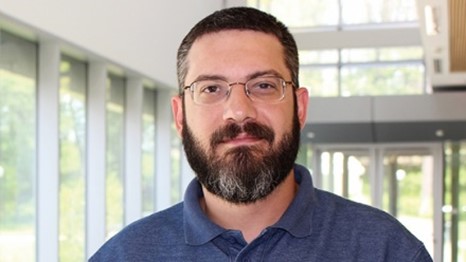


- Background review of the existing landscape of electrosurgical pencils, including Stryker materials and competitor benchmarking
- Develop a thorough understanding of the voice of the customer in current ergonomic concerns with the SafeAir pencil through interviews with surgeons or Stryker employees, including but not limited to a more ergonomic shape, and a more efficient way for surgeons to control the output of the pencil without having to access the control unit.
- Development of a multitude of design ideas (50+) to address the key ergonomic concerns.
- Selection of top design ideas, with Stryker input.
- Full prototype design for 1 or 2 of the highest priority concepts.
- Functional prototype of a system that addresses the top requirements.
- Student evaluation of device (using surrogate materials for body tissue) against the status quo.
- User group testing with surgeons or representative Stryker employees.
- A gap analysis of the prototype function vs. requirements, and recommendations on priority areas for further investigation or refinement.
- Consider additional solution concepts and develop rough prototypes to illustrate.
- Apply solutions to ergonomic concerns to both the standard and telescopic pencil designs.
- Include/propose considerations for automated assembly of the design concept.
Ergonomics and Human Factors Design (2-3 Students)
Specific Skills: Human cognitive and manual task evaluation, physiology, ergonomic design. Completion of IOE 333 is a plus. Likely Majors: IOE, KINESMechanical Design (2-3 Students)
Specific Skills: Mechanical Design: determining user needs, techniques for fast prototyping, experimental testing and evaluation, integrating mechanical and electrical components. EECS 314 or equivalent is a strong plus. Interest or experience in human factors design is a plus. Likely Majors: ME, BMEElectrical system and Hardware Design (2 Students)
Specific Skills: Electrical system design, basic controls and embedded systems. Completion of EECS 215/216 is recommended. Completion of EECS 373 may enable a broader range of solutions. Likely Majors: EE, CE, ECEAdditional Desired Skills/Knowledge/Experience
- Stryker culture is high-energy and quality driven. We value those who are good team members, demonstrating a hands-on, proactive approach to their work. We particularly appreciate teammates able to work across disciplinary categories and contribute widely.
- Passion for the field of health care.
- Interest in ergonomic design, ideally with knowledge of human anatomy.
- Successful team-based experience in any context.
- Practical mechanical system design skills: 3D printing, Sensor/hardware integration, basic controls, fast prototyping, CAD, machining, etc.
- Practical electrical system design skills: circuit design, feedback controls, and signal processing.
Sponsor Mentor

Brian VanDerWoude
Technical Fellow – Mechanical
Mechanical engineer and Technical Fellow at Stryker with 24 years of experience designing and developing medical devices. Brian has launched numerous products for orthopedic and general surgical applications, and has received 30 U.S. patents. He is currently leading elestrosurgical product research for Stryker’s Surgical Technologies business unit.
Faculty Mentor

Robert Middleton
Associate Research Scientist, Mechanical Engineering
Rob’s research interests include combustion, focusing primarily on automotive engines, simulations of spark ignited and advanced auto ignition combustion modes using 1D models and 3D CFD including large scale parallel simulations, and the impact of fuel properties and kinetics on engine efficiency and emissions. Rob is an experienced MDP mentor.
Weekly Meetings: During the winter 2025 semester, the Stryker Surgical Pencil team will meet on Wednesdays from 1:30 – 3:30 PM in the ROB Auto Lab.
Work Location: Most of the work will be taking place on campus in Ann Arbor. Students will have access to the engineering services department at Stryker Instruments Kalamazoo for testing or access to specialized equipment should the need arise.
Course Substitutions: CE MDE, ChE Elective, EE MDE, CoE Honors, IOE Senior Design, MECHENG 450, MECHENG 490, SI Elective/Cognate
Citizenship Requirements: This project is open to all students. Note: International students on an F-1 visa will be required to declare part time CPT during Winter 2025 and Fall 2025 terms.
IP/NDA: Students will sign IP/NDA documents that are unique to Stryker.
Summer Project Activities: No summer activity is required. Qualified students will be guaranteed an opportunity to interview for summer 2025 internships. Students must have the right to work in the U.S.A. indefinitely, without sponsorship, to participate in a summer internship.
Learn more about the expectations for this type of MDP project
